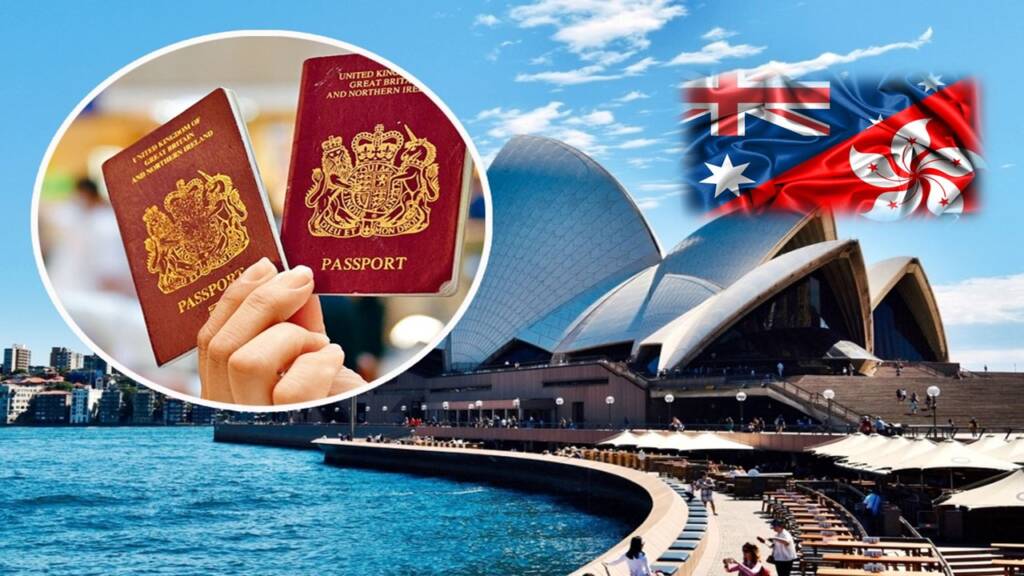In 2019, Emily, a Hong Kong resident, journeyed 4,500 miles to pursue her university education in Australia, envisioning a future career upon graduation. However, her plans took an unexpected turn.
In 2019, Hong Kong witnessed extensive pro-democracy protests, triggering a response from Chinese and city authorities. This reaction resulted in arrests, imprisonments, and the enforcement of the National Security Law in 2020. This law, broadly written and ambiguous, criminalizes various expressions of dissent. Consequently, Emily’s aspirations for returning home after completing her studies faced significant challenges due to the altered political landscape in Hong Kong.
Join us on Telegram: https://t.me/tfiglobal
“I was watching Hong Kong become more and more like a police state,” said Emily, who declined to give her real name. “The law destroys the remaining freedom of speech we have. I don’t want to return to a Hong Kong that I’m completely unfamiliar with anymore.”
In the transformed Hong Kong landscape, individuals perceived as lacking loyalty to the establishment, including opposition politicians, activists, students, and civic organizations, have experienced suppression. The National Security Law, boasting a 100% conviction rate, prescribes life imprisonment for violations.
The international community, including the U.K., Canada, and Australia, criticized the law’s imposition in the former British colony. Australia, a favored destination for Hong Kongers, promptly streamlined visa procedures, leading to over 10,000 Hong Kongers relocating there in 2022.
Yet, despite these efforts, concerns persist among activists about Australia’s effectiveness in attracting and retaining individuals like Emily. Lingering fears about delayed asylum approvals, uncertainties regarding a forthcoming migration strategy, and apprehensions arising from evolving Australia-China trade and diplomatic relations add to the unease. Furthermore, the issuance of arrest warrants by Hong Kong for former citizens residing in Australia raises long-term implications, contributing to the growing anxiety among Hong Kongers about their future.
In response to the political changes in Hong Kong, the Australian government implemented two specialized pathways for permanent residency in November 2021, accessible to Hong Kongers from March 2022. These pathways, tailored for young individuals like Emily, necessitate a four-year stay in Australia (or three years in designated regional areas) on either a temporary skilled visa or a temporary graduate visa.
Read More: Naval Clash: Australia’s Gamble with Germany Unveiled
The uptake of these pathways is notable, with the issuance of 2,028 temporary graduate visas to Hong Kongers in the fiscal year ending June 2023, marking a fivefold increase from four years earlier. Concurrently, applications from Hong Kong to Australian universities rose from 2,983 in fiscal 2019 to 4,014 in fiscal 2023.
Despite the success of these specialized routes, some individuals leaving Hong Kong find themselves ineligible, compelling them to seek protection visas, which have stringent acceptance criteria. Melbourne-based immigration lawyer James Wardlaw highlights that those opting for protection visas are typically young participants in the protests, fearing persecution if they were to return to Hong Kong.
“A lot of my clients have their financial support from back home cut off. They don’t just have 30 to 50 grand lying around to do a new university course to qualify for a graduate visa,” said Wardlaw.
For those compelled to seek protection visas, the protracted processing times emerge as a major concern, stretching into years.
Concerns arise among rights advocates about potential political considerations affecting protection visa issuance. Speculation centers on a potential link between the delay and the ongoing sanctions on Australian imports by Beijing. The recent thaw in relations between Australia and China, marked by Prime Minister Anthony Albanese’s visit to Beijing, adds complexity to the situation. Despite concerns, the Department of Home Affairs has not responded to queries regarding these issues.
Advocacy groups are currently expressing concerns about the recently announced Migration Strategy by the Department of Home Affairs in December of the previous year.
The new policy involves a reduction in the maximum eligible age for international students to obtain a temporary graduate visa, decreasing it from 50 to 35 years old. This change, according to Jason Clare, the Minister for Education, aims to position the visa as a tool for early career professionals contributing to the Australian economy over an extended period.
Read More: Australia’s $11B Naval Revolution: Drone Boat Power Unleashed!
Within the Hong Kong community, there are speculations that this age adjustment may impact Hong Kongers seeking graduate visas. The Department of Home Affairs has communicated that more specific details regarding the policy will be disclosed by mid-2024.
A lawyer from Hong Kong, currently practicing in Sydney, notes that the majority of his clients from Hong Kong are “mature” students over 35. These individuals intend to utilize their student visas as a pathway to settle permanently in Australia with their families, with one client being a 47-year-old student expected to graduate this year.
In response to concerns over increasing Chinese influence, a rally in Sydney on June 12, 2021, reflected the worries of protestors, emphasizing support for Hong Kongers.
Expressing potential consequences of the altered Migration Strategy, an anonymous lawyer noted that families, having liquidated their assets in Hong Kong with no intention to return, could face significant challenges if the age adjustment applies to Hong Kong applicants.
Despite these uncertainties, Hong Kongers in Australia maintain their optimism.
